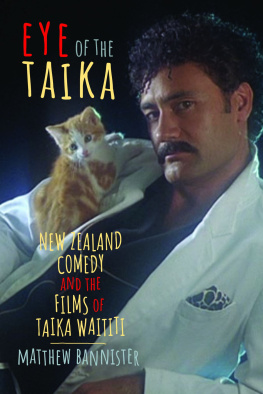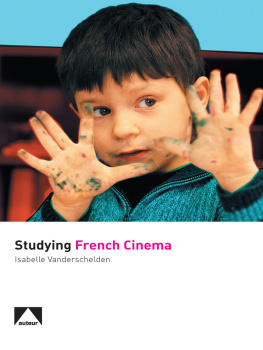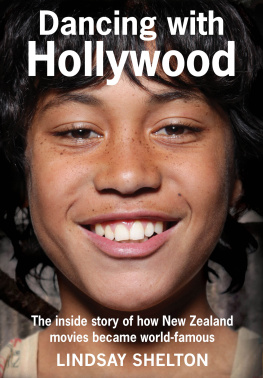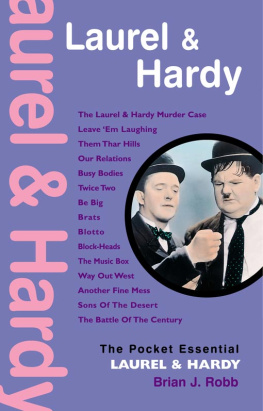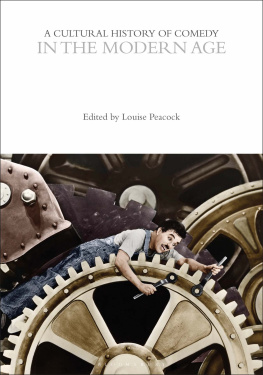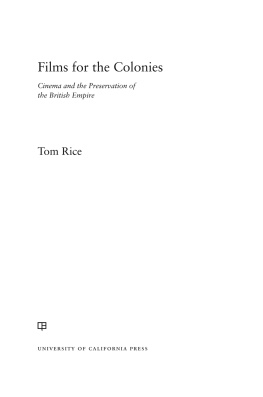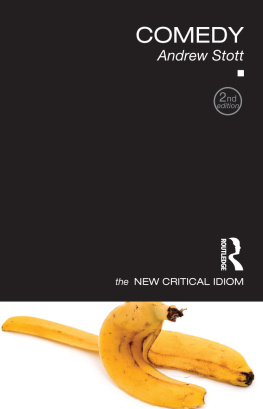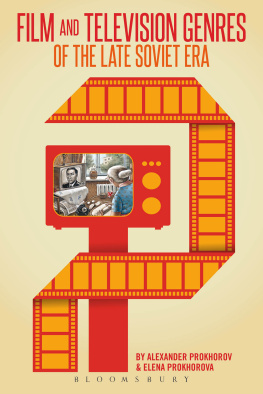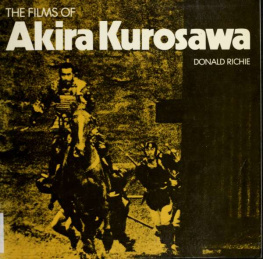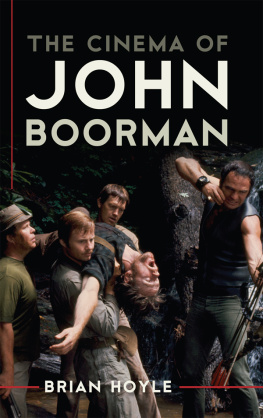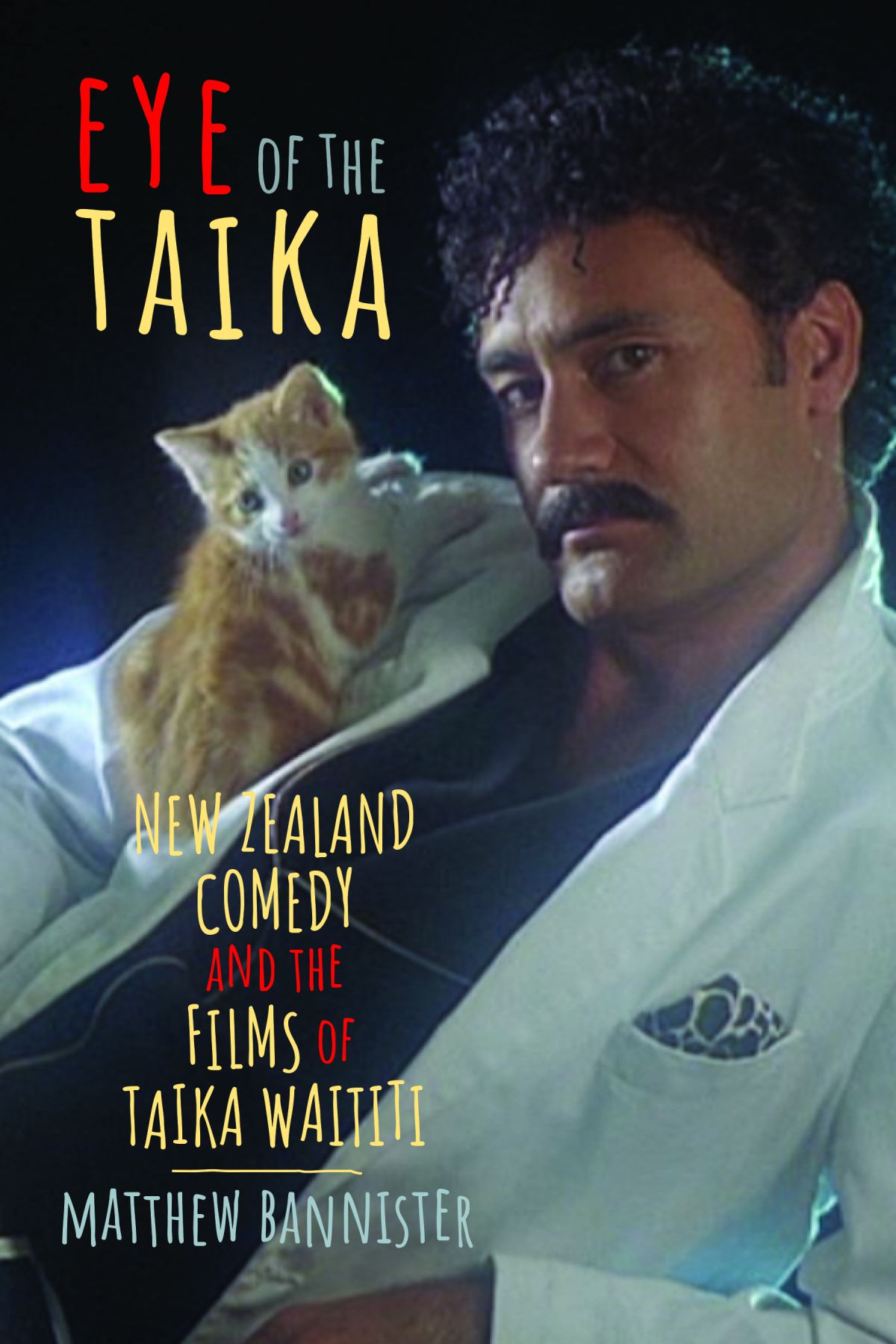
Eye of the Taika
Contemporary Approaches to Film and Media Series
A complete listing of the books in this series can be found online at wsupress.wayne.edu.
General Editor
Barry Keith Grant
Brock University
Eye of the Taika
New Zealand Comedy and the Films of Taika Waititi
Matthew Bannister

Wayne State University Press
Detroit
Copyright 2021 by Wayne State University Press, Detroit, Michigan, 48201. All rights reserved. No part of this book may be reproduced without formal permission. Manufactured in the United States of America.
ISBN (paperback): 978-0-8143-4533-7
ISBN (hardcover): 978-0-8143-4532-0
ISBN (ebook): 978-0-8143-4534-4
Library of Congress Control Number: 2021936464
Cover photo: Taika Waititi (as Alamein) plays Boys hero Michael Jackson. Image courtesy of Taika Waititi. Cover design by Brad Norr.
The author acknowledges the assistance of School of Media Arts, Wintec (Waikato Institute of Technology) which provided research funding, and Marion Tahana and Robin Cohen, who read parts of the manuscript and provided useful feedback.
Wayne State University Press rests on Waawiyaataanong, also referred to as Detroit, the ancestral and contemporary homeland of the Three Fires Confederacy. These sovereign lands were granted by the Ojibwe, Odawa, Potawatomi, and Wyandot nations, in 1807, through the Treaty of Detroit. Wayne State University Press affirms Indigenous sovereignty and honors all tribes with a connection to Detroit. With our Native neighbors, the press works to advance educational equity and promote a better future for the earth and all people.
Wayne State University Press
Leonard N. Simons Building
4809 Woodward Avenue
Detroit, Michigan 48201-1309
Visit us online at wsupress.wayne.edu
For Alice, without whom this book would not have been written.
Whia te iti kahurangi ki te tuohu koe me he maunga teitei.
Contents
What Is Funny?
A good place to begin Taika Waititis story is The Art of Creativity, his 2010 TEDx talk, given just after the succs destime of Boy (2010). When I went to see Wilderpeople in my hometown of Hamilton/Kirikiriroa, New Zealand (NZ), people around me were reciting the dialogue. At the end of the film they clapped and cheered, behavior Id never seen in a local audience. I thoughtsomeone should write about this guy.
Play is central to understanding Waititi specifically, and laughter in general. Gregory Bateson describes animal play as involving a signal indicating that These actions in which we now engage do not denote what those actions for which they stand would denote, an example being a dog playfully nipping another.
The situation I have in mind is Waititis TEDx presentation. The trickster, like the Cretan liar, speaks from a paradoxical position, and is a practical jokerplay can emerge at any time, out of the fabric of ordinary life, without the normal cues that accompany humor. TEDx is described on its website as events... organized by passionate individuals who seek to uncover new ideas and to share the latest research in their local areas that spark conversations in their communities. When I searched creativity, the nominal topic of Waititis presentation, I found hundreds of TED/TEDx presentations, by such luminaries as Steve Jobs, Frank Gehry, Philippe Starck, and Elizabeth Gilbert. Creativity is clearly a topic that people take seriously. But is Waititi being serious?
Laughter
Why do people laugh? This is a more fundamental question than what humor is, because laughter occurs for many reasons, only some of them humorous. Or as the quote, commonly attributed to W. C. Fields, puts it: The funniest thing a comedian can do is not do it. In The Art of Creativity, Waititi doesnt give a presentation about what creativity or art is, at least, not by accepted standards. Art? What is it? Is it important? I have no idea. Move on. I mean, can it... save the impoverished? No, it cant, unless its made of food. Can it bring about world peace? Only if art is actual world peace.
One of the negations of humor is literalizationby reducing the moral to the physical (as noted by Henri Bergson), it deflates pretension, as seen above. The point about laughter being part of the everyday is enacted in the form and content of Waititis talk, which encourages different kinds of laughter and makes us ask ourselvesis this funny? What is funny?
Performance
Waititis talk/routine is apparently a performance. All TEDx talks are performances, in the sense that they have an audience, who evaluate what they see and hear. But performance is not always sequestered from everyday life. Serious, formal play is widespread in human culture as rolesparent, child, banker, criminal, as rituals. A performative evaluation of such roles tends to focus on seamless execution. Henri Bergson writes: life and society require... a constantly alert attention... elasticity of mind and body... to adapt ourselves.
Waititis talk is, then, an anti-performance, most obviously in the sense that he acts like he doesnt know what he is doing and continually refers to his own performance as such: My, uh, name is Taika Waititi, as she said, and the uh... time starts now. These redundant statements have the effect of highlighting convention, reversing the frame (we expect competence), and foregrounding his speech as a performance. He is signaling to the audience that he is playing a man giving a talk, and their perhaps slightly uncomfortable laughter signals that they know (but does he, they think?). Even anti-performance is still performancethe presence of a stage and an audience make such an interpretation almost unavoidable. The anti in his performance can also be interpreted as teasing or banter, playful combat with the audience. Waititi then presents a slide with a list, with such mundane titles as Intro; Joke (which could suggest that his anti-strategy is intentional):
[T]his is a quick run through of what Im going to talk about tonight [audience titters]. First, I thought Id just introduce myself. So that would be the first thing where ImI mean, Taika Waititi [audience titters]. So thattheres that done. Id like to just break the ice. Maybe start off with a joke. This joke, Im just going to put it out there, it just involves me telling you that Ive just flown into Doha, and as a result, my arms are tired. The aim with that joke isIve flown into Doha but it was on an airplane in reality. And what Ive done there with the joke is Ive taken it further and said that my arms are tired, suggesting that Ive flown like a bird to Doha [audience titters], so thats the backstory of the joke [scattered audience laughter, applause]. Cool. Its going pretty well.
The audience may be laughing because they find Waititi funny, or because they are embarrassed, encouraged by his frequent self-deprecating comments: I just really had no idea what to do, or what to say, an ambiguity relevant to a lot of Waititis performances. By acting out his refusal to play the game by the rules, Waititi is inviting the audiences aggressionwhen people laugh in disbelief. But Waititi remains consistent to his own fiction, which consists of his lack of a fiction, and the audience goes along with it. This approach is similar to many alternative comedies, which seem to take a quasi-documentary approach, lacking the traditional cues that signal laughter,
Next page
